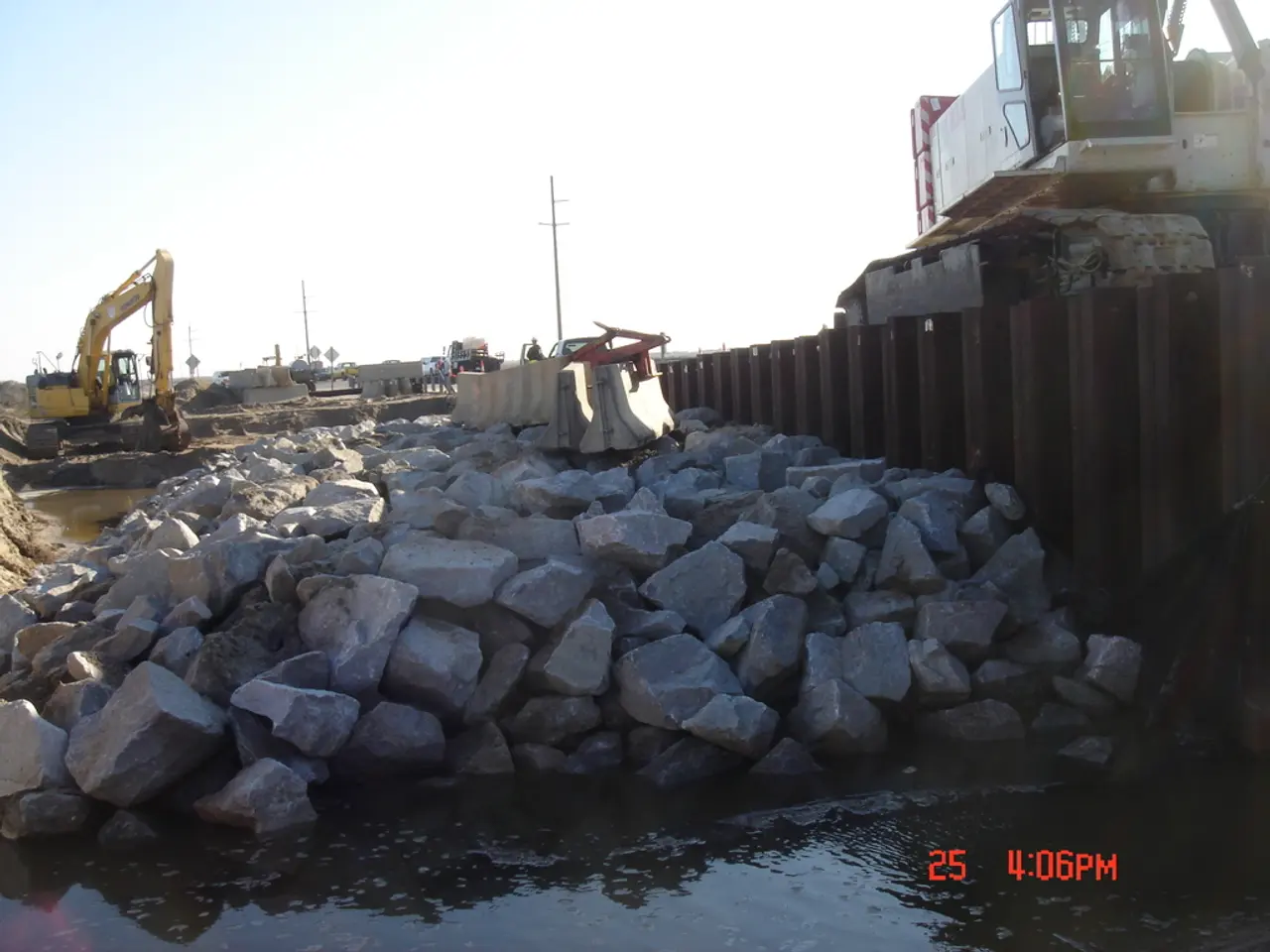Bavaria's Ongoing Dry Spell Causes Grave Concerns for Environment Experts
Insufficient rainfall in Bavaria - Insufficient rainfall recorded in Bavaria region
Let's dive into Bavaria's current water crisis, shall we? Despite some recent rainfall, the area's environmental authorities are far from pleased. The Bavarian Environment Agency in Augsburg has declared the winter half-year (November through April) as "too dry," following a scarce snowfall during the season.
Experts scrutinize the hydrological winter half-year, a term that encompasses everything from snowfall to rainfall. In Würzburg, there was only a measly one day with a centimeter or more of snow during winter, while Augsburg saw four and Munich a mere six. Contrastingly, Hof in Upper Franconia had a relatively average winter with 34 snowy days.
The lack of snowiness is also clearly visible on Germany's towering Zugspitze. The German Weather Service's station on Zugspitze recorded a paltry 116cm snow depth on May 5, a number not seen since 1942, when it was only 85cm.
On the groundwater front, things ain't looking good either. Owing to the insufficient precipitation over the past few years, not enough new groundwater is being formed. According to the Environment Agency, almost half of the shallow measurement points showed "low or very low" water levels in the last winter half-year. Meanwhile, in the deeper groundwater layers, the situation was slightly better – still, 41 percent of the measurement points displayed a "low water" situation.
Despite a slight improvement last year in the deeper groundwater layers (fewer measurement points showed low values), the latest report paints a dismal picture. Given the ongoing drought, the experts fear no recovery for Bavaria's drinking water reserves. Furthermore, they anticipate an unfavorable summer half-year – a time when evaporation by plants means even less water is available for new groundwater formation.
Groundwater serves as the most vital reservoir for drinking water in Bavaria, with over two-thirds of the state's drinking water originating from around 4,300 wells that tap into the groundwater. With the current water scarcity in mind, more conservation efforts will be crucial to safeguard Bavaria's drinking water sources.
Now, let's take a quick look at some additional factors that come into play here:
- Nitrate Pollution: High nitrogen surpluses from agricultural activities can lead to elevated nitrate concentrations, potentially harming drinking water quality.
- Forest Health: Forests help maintain water quality by providing natural filtration. Forest dieback, common in some parts of Germany, negatively affects water quality.
- Pollution Impacts: Pollution from nitrates and other agricultural contaminants can compromise the quality of drinking water sources. Efforts to protect natural habitats and implement environmental policies aim to mitigate these impacts.
By addressing these concerns and implementing policies that promote environmental conservation and sustainable agriculture, we can hopefully help Bavaria overcome the water crisis and secure a sustainable water supply for the future.
- The Bavarian Environment Agency, in the context of the ongoing dry spell, assessed the winter half-year (November through April) as "too dry" due to scarce snowfall.
- Precipitation, a crucial factor in hydrology, was insufficient over the past few years, leading to a lack of new groundwater formation in Bavaria.
- Considering the grave consequences of the ongoing drought, experts fear no recovery for Bavaria's drinking water reserves, relying heavily on groundwater (tap water originating from around 4,300 wells).
- In the realm of environmental science and climate-change, excessive nitrate pollution from agricultural activities could harm drinking water quality, potentially compounding the water crisis in Bavaria.
- Forest health, particularly in the context of water quality, is of significant concern, as forest dieback negatively affects water quality and filters, contributing to the water crisis in some parts of Germany.








